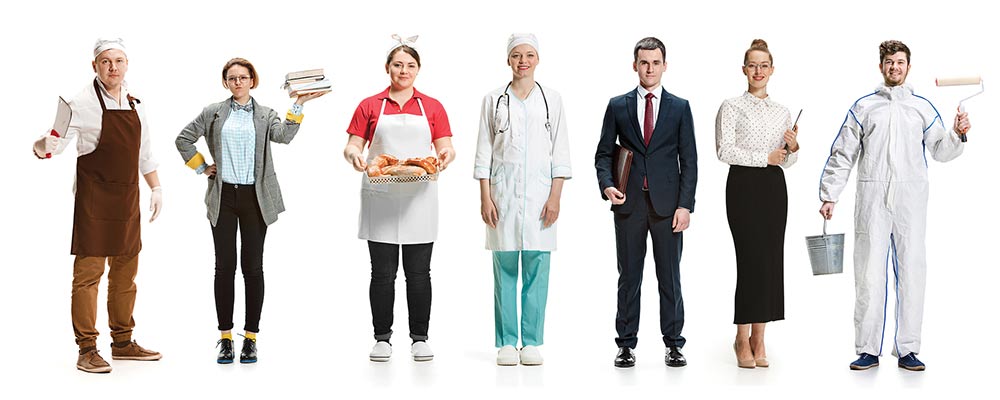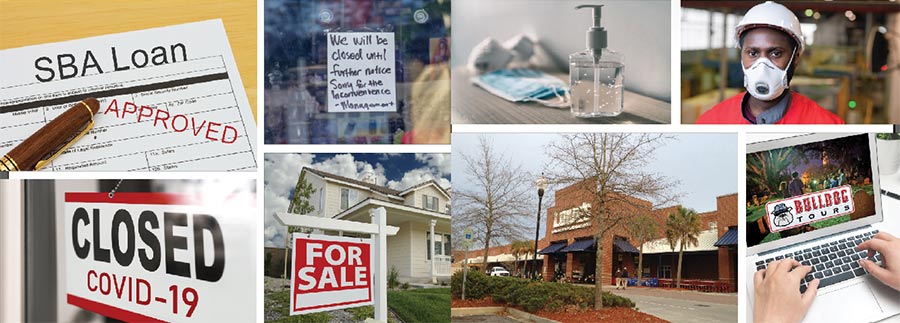
When the pulse started to take a turn and locals began taking COVID-19 more seriously, businesses became either essential or non-essential, a critical classification for small and micro businesses with impacts that will last long after the pandemic.
Local towns issued stay-at-home orders. Beaches were closed off to non-residents. Visitors were essentially turned away at the gates.
Among the hardest hit of the shutdown has been the food and beverage industry. The Charleston area is world-renowned for its restaurants, tourism and hospitality. Locally, the restaurant community is more independent, comprised of hospitality groups more so than it is chain-based—which means ownership looks different than it may in a larger area with a wide variety of chain restaurants, for example.
According to the Small Business Administration’s 2019 Business Profile, small businesses comprise 99.9% of all business ownership in the United States. Thankfully, restaurants were deemed essential and people began to rally behind them. With no dine-in seating allowed, conditions were put in place: drive-thru or carry-out orders only, curbside delivery and reduced hours. As a result of the slowdown, businesses unfortunately also were forced to reduce their staff. But the community stood up and people began purposefully ordering out because they wanted their favorite restaurants to survive. Websites were launched directing locals to restaurant links for easier ordering access. Our own community even arranged a series of different dates for food trucks to visit neighborhoods. Protocols were put in place for single person in-line ordering, along with sufficient social distancing in a waiting area parking lot. People have become creative in these trying times!

Restaurants are not the only industry suffering economically. As the pandemic has worsened locally and the number of affected people has risen, the restrictions have grown tighter with the list of essential businesses further whittling. Independent salons, recreational facilities, retail stores—things we personally believe are essential to our day-to-day lives—did not make the list.
Again, ingenuity prevailed and the call went out to support local—maybe it meant purchasing a gift card from a store or service vendor you know you will use at a later date. But the fact is people seem to understand small businesses are the backbone of our area and they want to support them, even if it means they have to do it from their homes for the time being.
Real estate agents in the area have seen a shift in their traffic, too. Carey Nikonchuk from The Brennaman Group in Mount Pleasant said, “Things do look different for us these days. Disclaimers are in place when you schedule a showing, asking that if anyone has been or is feeling sick that they do not show a house. Some homes have gloves or hand sanitizer by the door. I have been wiping down all door handles, keys, lockboxes, anything that I touch, and trying to stay six feet away from the client. Some sellers have declined showings, offering video tours instead. It’s a different world right now.”
The home improvement and construction industry has remained on the essential list and vendors have instituted new practices when attending to client needs, such as wearing face masks and ensuring distance when technicians enter homes.
Stores like Lowe’s and Home Depot have remained open as essential and have taken to limiting the number of patrons in the store at any given time, closing entry points and re-directing aisles so shoppers only can travel one way. Big-box stores like Costco and Sam’s Club have limited the number of shoppers and require guests to wait outside once they reach capacity, then allowing only a 1:1 entry to exit. Across the region, floors in grocery and drug stores are marked with tape indicating safe distances for standing in line.
Social media has become a key player in keeping people connected, not only to each other but also to keep abreast of what is happening with local businesses in their region as well.
In an effort to entertain, enlighten and keep their name in the public eye, Bulldog Tours, known locally for their culinary, history and ghost tours, began offering virtual tours every day on social media.
Another creative response came from local distilleries as they began making hand sanitizer. Firefly Distillery, which has been waiting on their labels, began its production on April 10.
According to Scott Newitt, owner of Firefly Distillery, “We did a lot of research and are making a hand sanitizer that is FDA and WHO compliant.”
Similarly, Local Choice Spirits redirected their production runs from their stills to high-proof alcohol suitable for sanitation and hand sanitizer because of the huge demand, especially for the hospitals and essential employees.
CEO Paula Dezzutti Hewlette remarked, “We wanted to assist and give back to our first responders in whatever way we could, and be able to help the general public secure what they need as well.”
They issued their initial batch to national labs in order to make hand sanitizer, and sent a donation to MUSC and the Lowcountry Food Bank. They will also have product available for public purchase through Striped Pig Distillery in North Charleston.
Many things have happened in this city over the years, but one thing is for certain: When the chips are down and it truly matters, we come together.
By Jeanne Taylor

Leave a Reply